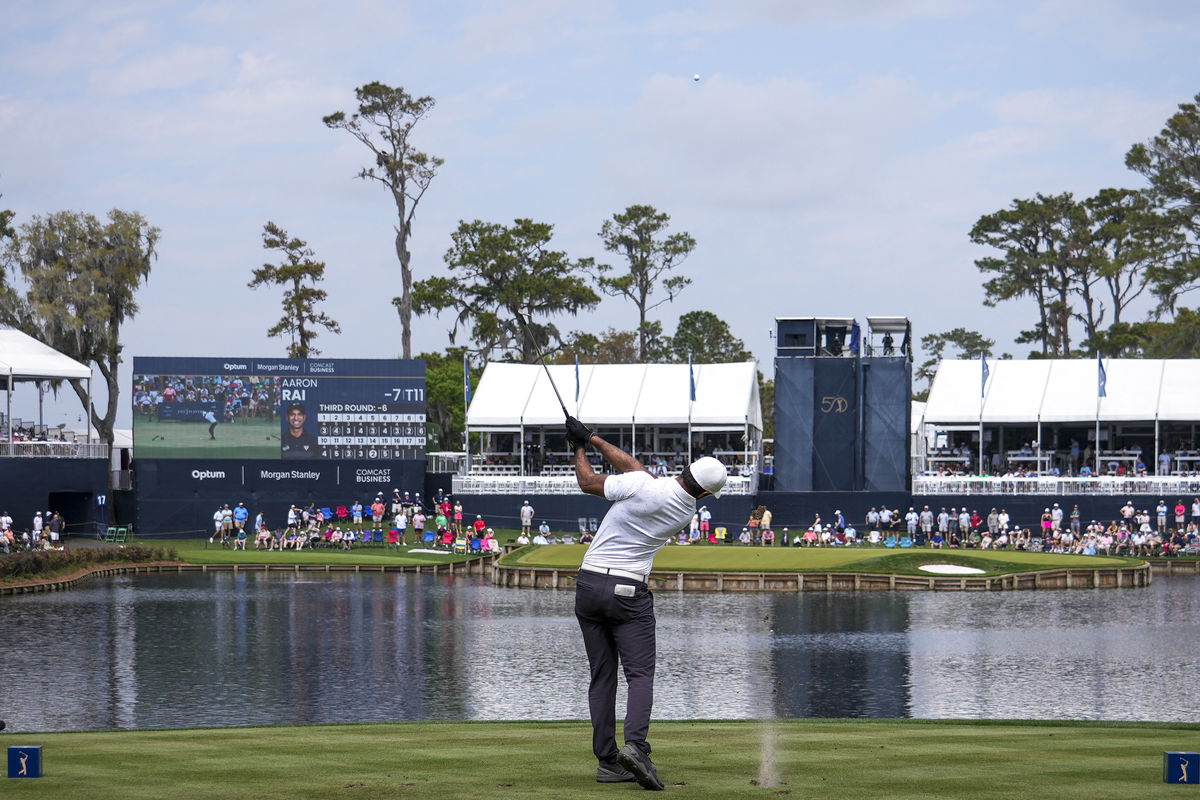

In October 2022, PGA Tour player Corey Perreira’s then-girlfriend, Leah Bertuccelli, was diagnosed with the rare soft tissue cancer, alveolar rhabdomyosarcoma. A couple of weeks after her first chemotherapy session, Bertuccelli lost most of her hair and decided to shave her head completely. Although Corey had already put his golf career on hold and supported Leah through and through, he still asked Bertuccelli to shave his head. Then, when he got a sponsor’s exemption to play at the 2023 Barracuda PGA event, the former pole-vault athlete revealed that the two will be wearing sunflower clips to show their support for sarcoma patients.
Watch What’s Trending Now!
But earlier on June 20, Corey updated his followers, “Unfortunately her cancer has evolved past the point of reasonable treatment with multiple symptomatic reoccurrences around her lungs.” Three days later, Bertuccelli passed away at her family home. While Perreira may no longer have his wife by his side, he aimed to carry her in spirit at the Procure Championship. After the opening round, Perreira revealed, “Yeah, it’s funny, I was going to tie, I don’t know what to call it, it’s like a garland kind of thing, it has sunflowers on it. It’s the symbol of sarcoma patients. I was going to put it on my bag and I just flat out forgot this morning. It’ll be on the bag tomorrow.”
For him, it’s a way to keep Leah close on every walk through Napa’s fairways. The couple got engaged in Napa last December during the Asher Tour. Pereira told Monday Q he still struggles to accept it: he often reaches for the phone to call her, only to be hit by the painful reality that she’s no longer there.
After Leah’s diagnosis with RMS, the then-25-year-old fought a relentless battle: 32 rounds of chemotherapy, over 50 radiation sessions, countless alternative treatments, and every clinical trial they could find. Pereira drove her to Stanford twice a month, sometimes for multiple rounds of radiation in a single day. Despite it all, the cancer kept returning. Leah went into remission four times, and each time the cancer kept coming back. Pereira says how unusual all of it was, but he still took lessons from Leah’s fight.
“It was an interesting situation because we knew that the outcome wasn’t going to be good from the start, and that didn’t mean she wasn’t going to feel incredible at times. We hit tennis balls a couple months before she died, so it was a really unique type of cancer. Her journey, you know, I just, I can’t say enough good words about my wife. I mean, she was such a special human. You know, I’ve learned a lot from her.
“I learned not to take things seriously. She would joke about cancer, she would talk about cancer like it was completely insignificant. I think that’s how you have to approach stressful moments, even on the golf course. You know, this is a big week for me. If I have a good round tomorrow and the weekend, it could change my career. You know, just doesn’t really — I’m not saying it doesn’t matter, but it’s not as important as it used to be.”
Leah’s RMS was one of the rarest cancers found in adults, as it normally strikes children. It accounts for less than 1% of adult solid tumors and only 3% of all soft tissue sarcomas in adults. The doctors told the couple that the chance for an adult in their 20s to contract the illness was one in a couple of hundred million!
“I had no symptoms. I didn’t feel sick. You find yourself thinking that this [illness] is a part of life, but you didn’t think it would be a part of your life at this age,” Leah told Golf Digest 75 in an interview two years back.
By June of this year, the reality became inescapable. Bertuccelli was spending her final weeks at home with her close ones. Not long after, she passed away, leaving Pereira to face a life and a career without her by his side.
Pereira now recalls how she joked about cancer as if it were trivial. “She would joke about cancer, she would talk about cancer like it was completely insignificant,” he told the press. This perspective has now shifted the way he sees his own profession, which he is eager to bring back this week, but still, none of this matters anymore. “This week is big for me. If I have a good round tomorrow and the weekend, it could change my career. But it’s not as important as it used to be.”


